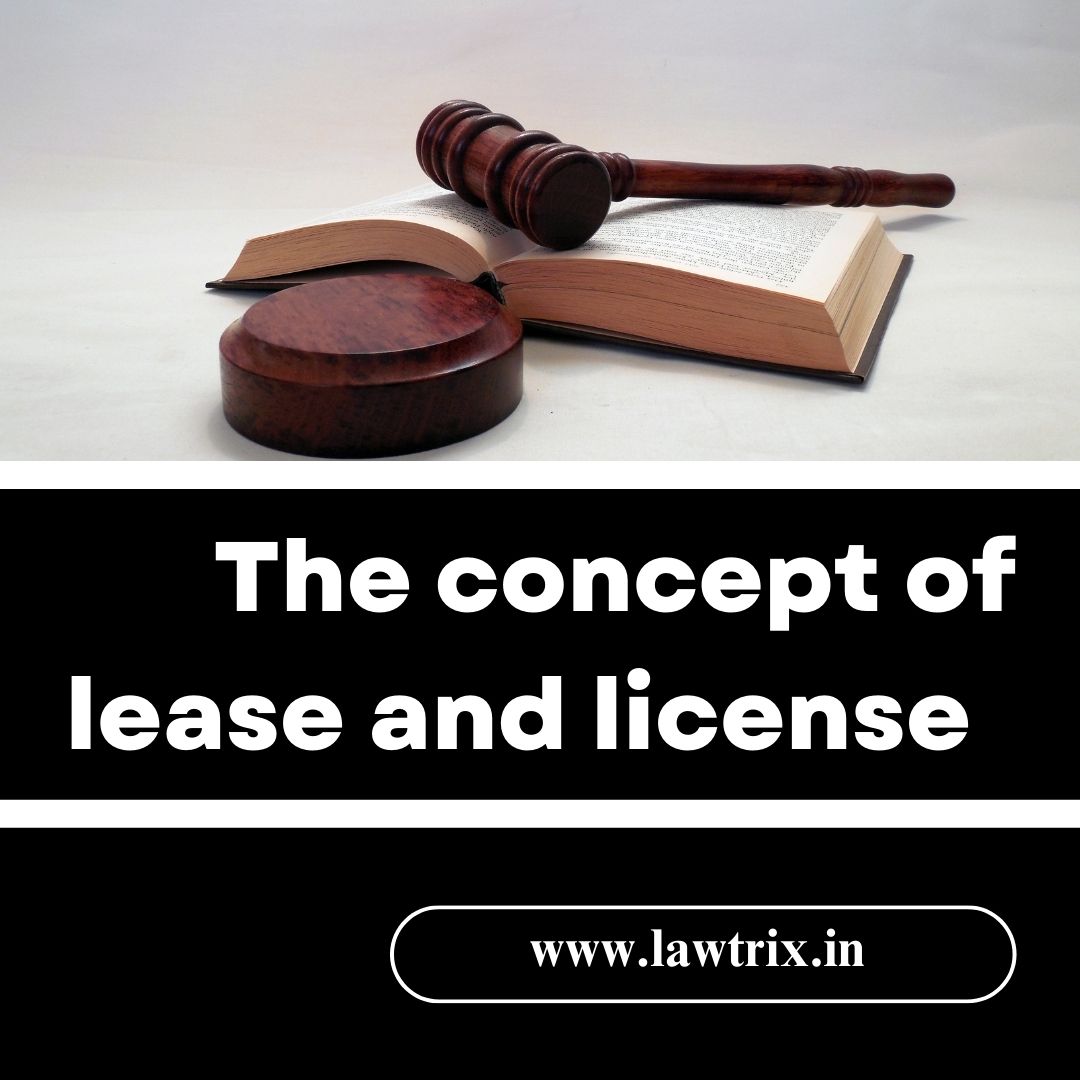


The
concepts of lease and license are central to property law and are often used in
relation to the use or occupation of immovable property, such as land or
buildings. While both leases and licenses allow individuals or entities to
occupy or use property, they are distinct legal arrangements with different
implications regarding the rights, duties, and legal standing of the parties
involved.
A
lease refers to a contractual arrangement in which the owner of a
property (the lessor) grants another party (the lessee) the right to use and
occupy the property for a specified period in exchange for payment, often
referred to as rent. A lease typically grants the lessee a proprietary interest
in the property, meaning they have a right to exclusive possession of the
premises during the lease term. This form of arrangement creates an estate or
interest in the property, which is legally enforceable and can be transferred
or inherited in certain circumstances. Leases are generally governed by
statutes and regulations, which provide protections to both the landlord and
tenant regarding the duration of the lease, rent, maintenance, and other
obligations.
On
the other hand, a license is a more temporary and less formal
arrangement where the owner of the property (the licensor) grants permission to
another party (the licensee) to use the property for a specific purpose. Unlike
a lease, a license does not grant the licensee exclusive possession or any
proprietary interest in the property. Instead, the licensee only receives
permission to use the property under conditions set by the licensor, and the
license can usually be revoked at the discretion of the licensor. Licenses are
often used in situations where the occupation or use of property is temporary
or where no long-term rights or interests are required, such as in hotel stays,
parking arrangements, or granting permission to host an event on private land.
The
distinction between lease and license has significant legal implications.
Leases create enforceable rights and obligations for both parties, and tenants
enjoy protections under tenancy laws, while licenses are more flexible and
revocable, with fewer statutory protections for the licensee. The difference
lies primarily in the level of control and possession over the property and the
duration and permanence of the arrangement.
Understanding
the difference between these two concepts is crucial for both property owners
and individuals or entities seeking to occupy or use land or buildings, as it
impacts their legal rights, remedies, and responsibilities. Whether choosing a
lease or a license depends on the nature of the relationship, the intended use
of the property, and the desired level of control over the premises.
A
license and a lease are both legal agreements that grant rights
to use property, but they differ significantly in their nature, purpose, and
the legal relationship they create between the parties. Below is a comparison
of the two:
1. Definition:
2. Nature of Right:
3. Transferability:
4. Duration:
5. Revocability:
6. Possession and Control:
7. Right to Alter the Property:
8. Examples:
9. Legal Remedies: